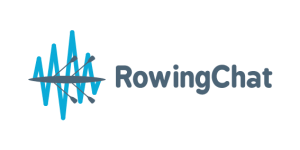Phil White is the co-author of Waterman 2.0 a book by Kelly Starrett about his journey through watersports, injury and understanding how human performance in repetitive movement sports like rowing can be optimised.
Sponsors
Please help us by clicking on these links and sharing with your friends
Listener survey https://rowing.chat/sponsor/listener-survey/
Blake Gourlay The movement of Rowing book offer discount https://rowing.chat/sponsor/blake-gourlay-book/
William Mahoney shirt maker for athletes and discount coupon https://rowing.chat/sponsor/william-mahoney/
Timestamps to the show
03:00 Phil White – professional author of books on human performance
04:30 How i met Kelly Starrett – The Waterman and a famous Crossfitter. I got injured deadlifting and watched his videos on YouTube
07:00 Kelly’s waterman story – he couldn’t feel his arm. His coach said “that’s what happens” go and get surgery. So he founded Mobility WOD [workout of the day]
10:00 What percentage of injuries are preventable? Acute injuries are not preventable but many e.g. RSI you can mitigate severity and delay onset. Positions we should be able to achieve and maintain in our body. Train the antagonist movement to mitigate rowing injuries
13:00 How to prevent rowing injury. What hurts? what you’ve worked out; work down from the neck for 2-3 minutes per side per day on soft tissue mobility.
18:00 Lifestyle changes for overall wellbeing – sleep, cut caffeine 6 hours before bed time and fewer than 2 alcoholic beverages a day; sleep in a cold, dark room and as much as you can; get consistent sleep and wake times
21:00 Mobility with a full range of motion and sustaining under load. Combine with “know thyself”
25:00 Waterman 2.0 book link https://amzn.to/36eRMvC
26:00 number one daily practice – take a walk
29:00 Injury prevention exercises. Start with kettlebell deadlift, 2 handed kettlebell swing; One handed; Turkish get-up; leg strength and grip strength
34:45 What do do when you’re injured. Active rest gives bloodflow for healing. But anti-inflammatories and ice blunt your body’s “danger” signal and slow the acute recovery phase. It delays your return to sport.
n
